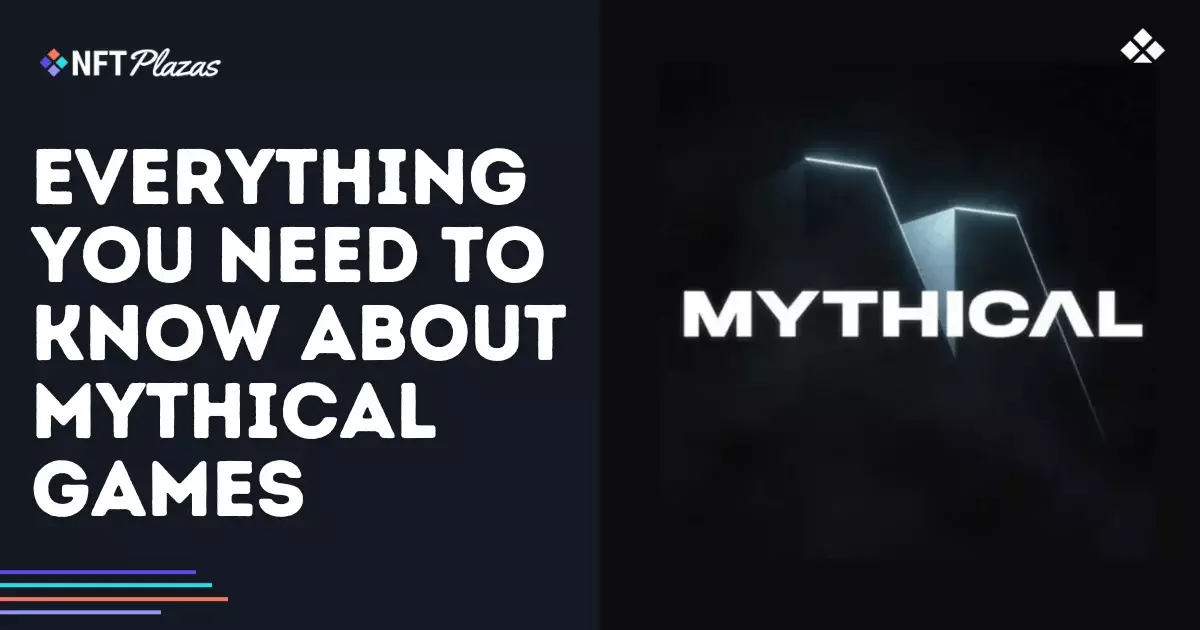Mythical Games arrived on the scene with an ambitious promise: to revolutionize gaming by integrating blockchain technology and granting players true ownership of in-game assets. From its inception, the company’s vision radiated a belief that blockchain would be the future of gaming sovereignty. However, beneath this shiny veneer lies a fragile ecosystem built more on hype than on sustainable innovation. Despite securing billions in funding and forming strategic partnerships with major brands and sports leagues, Mythical’s narrative is riddled with overinflated claims and an overestimated capacity for mass adoption. The idealistic notion that blockchain could seamlessly blend into entertainment without disrupting gameplay remains largely utopian. Reality proves that the technology is still cumbersome for casual players, and the market’s skepticism toward NFT-centric gaming continues to simmer beneath the surface.
The company’s leadership, comprising veteran executives from AAA gaming and entertainment industries, projected confidence rooted in industry credibility. Yet, their overreliance on blockchain as the core differentiator increasingly appears as a marketing tactic rather than a genuine innovation. In truth, the infrastructure is complex, and trying to simplify it with platforms like Mythical’s own does little to stem the inherent decentralization issues, high transaction costs, and scalability limitations that continue to hinder consumer-friendly adoption. Mythical’s approach—abstracting blockchain behind a simple sign-in—masking blockchain’s true nature, might look promising initially, but it ultimately sidesteps vital ongoing challenges. Will players truly embrace digital ownership when the underlying technology remains opaque and sometimes inaccessible? The short-term hype masks these persistent holes, which threaten to derail Mythical’s lofty ambitions.
Overpromising with Major Partnerships and Flawed Long-Term Vision
Mythical’s strategy leaned heavily on fuzzy collaborations with high-profile brands, from NFL to FIFA, and influential NFT artists like Deadmau5 and Burberry. The intent seemed to use these endorsements as credible proof of blockchain gaming’s mainstream potential. Yet, branding alone does not guarantee loyalty or sustainability. While these partnerships temporarily boost visibility and interest, they do little to address the core issues of gameplay depth, user engagement, and long-term retention.
Blankos Block Party, Mythical’s flagship project, exemplifies this disconnect. On paper, collecting and customizing vinyl toy NFTs sounds charming; but in practice, it suffered from the same fundamental flaw endemic in many blockchain games: initial curiosity fades quickly. By late 2023, Mythical was forced to shut down the PC version and shift focus to mobile—a desperate attempt to salvage interest. This pivot underscores how fleeting such innovations can be when they rely too heavily on novelty rather than solid game mechanics. Despite attracting collaborations with luxury brands, the game struggled to evolve beyond its initial gimmick, revealing an overreliance on aesthetics rather than substance.
In the broader context of gaming industry evolution, their reliance on celebrity endorsements, licensed content, and seasonal events appears more transactional than transformational. These strategies do little to embed blockchain gaming into mainstream consciousness or to develop a genuinely immersive experience. Instead, they risk reducing web3 to a branding tool—an add-on that emphasizes ownership without delivering meaningful gameplay improvements or social engagement.
Internal Turmoil and the Harsh Reality of Web3’s Volatility
Mythical’s rapid rise was mirrored by internal struggles that cast doubt on its long-term viability. The departure of key founders like Rudy Koch and subsequent legal conflicts raised questions about the company’s stability and future direction. These disputes, exacerbated by the crypto winter and market downturns, highlighted the fragility of a business based heavily on speculative investment and disruptive claims.
Layoffs and strategic shifts toward more sustainable models were inevitable. The shutdown of certain projects, including the PC version of Blankos, demonstrated that the promise of blockchain gaming is not only aspirational but also fraught with operational risks. Transitioning focus from blockchain-based assets to mobile gaming was a pragmatic adaptation—a recognition that the mass market remains reluctant to accept blockchain’s current state, especially in gaming where seamless experience is paramount.
Yet, this move raises an uncomfortable question: Was Mythical built on a core technology that is still unproven at scale, or was it merely riding a speculative bubble fueled by early crypto enthusiasm? The company’s financial history—massive funding rounds at inflated valuations—may have masked these vulnerabilities for a while, but reality caught up. The volatility of the crypto landscape, coupled with internal dissent, exposes the shaky foundation upon which so many web3 gaming ventures are built. If the industry continues to be driven more by speculative assets and hype than by genuine utility, companies like Mythical will struggle to find a foothold beyond fleeting trends.
Challenging the Fairytale of Blockchain’s Mainstream Breakthrough
Ultimately, Mythical Games’ journey illustrates the overarching dissonance between the dream of blockchain gaming and its actual capacity to deliver a robust, organic experience. The company’s attempts to embed web3 mechanics into familiar gaming genres—sports, racing, card battlers—highlight a core misconception: that the technology itself will power mass adoption without addressing fundamental user experience issues.
While early metrics, like nearly 5 million downloads for NFL Rivals, seem promising, they paint only part of the picture. Metrics of engagement, user retention, and gameplay depth remain elusive, obscured by seasonal campaigns and superficial NFT integrations. The bigger question isn’t whether Mythical can continue to innovate, but whether the entire blockchain gaming sector can move beyond exploitation of hype and celebrity collaborations to develop systems that genuinely improve and evolve player experiences.
In the end, the core challenge lies in the resistance to change from players who value polished gameplay over the allure of digital collectability. Mythical’s pioneering spirit, while admirable on paper, often appears more as a hurried dash to catch the latest wave rather than a thoughtful march toward sustainable growth. The game industry’s subsequent skepticism toward web3’s potential reflects a broader truth: technology cannot be a shortcut to success. Without profound innovation in gameplay design, user accessibility, and genuine decentralization, the promise of blockchain in gaming remains a lofty, elusive ideal—one that Mythical Games, despite its substantial achievements, may not fully realize.
















Leave a Reply